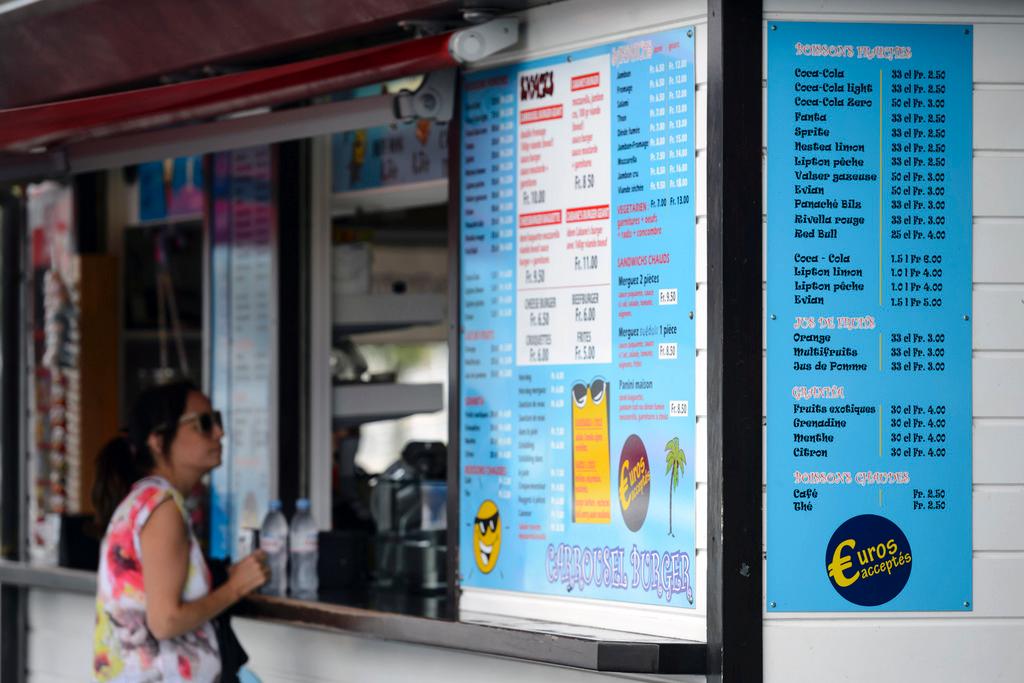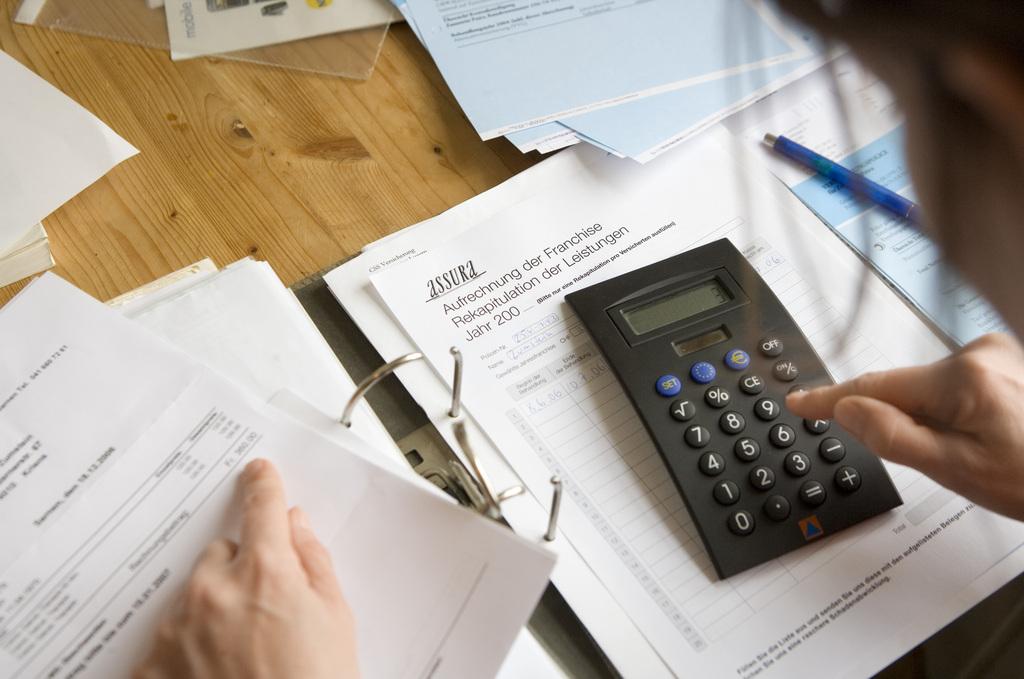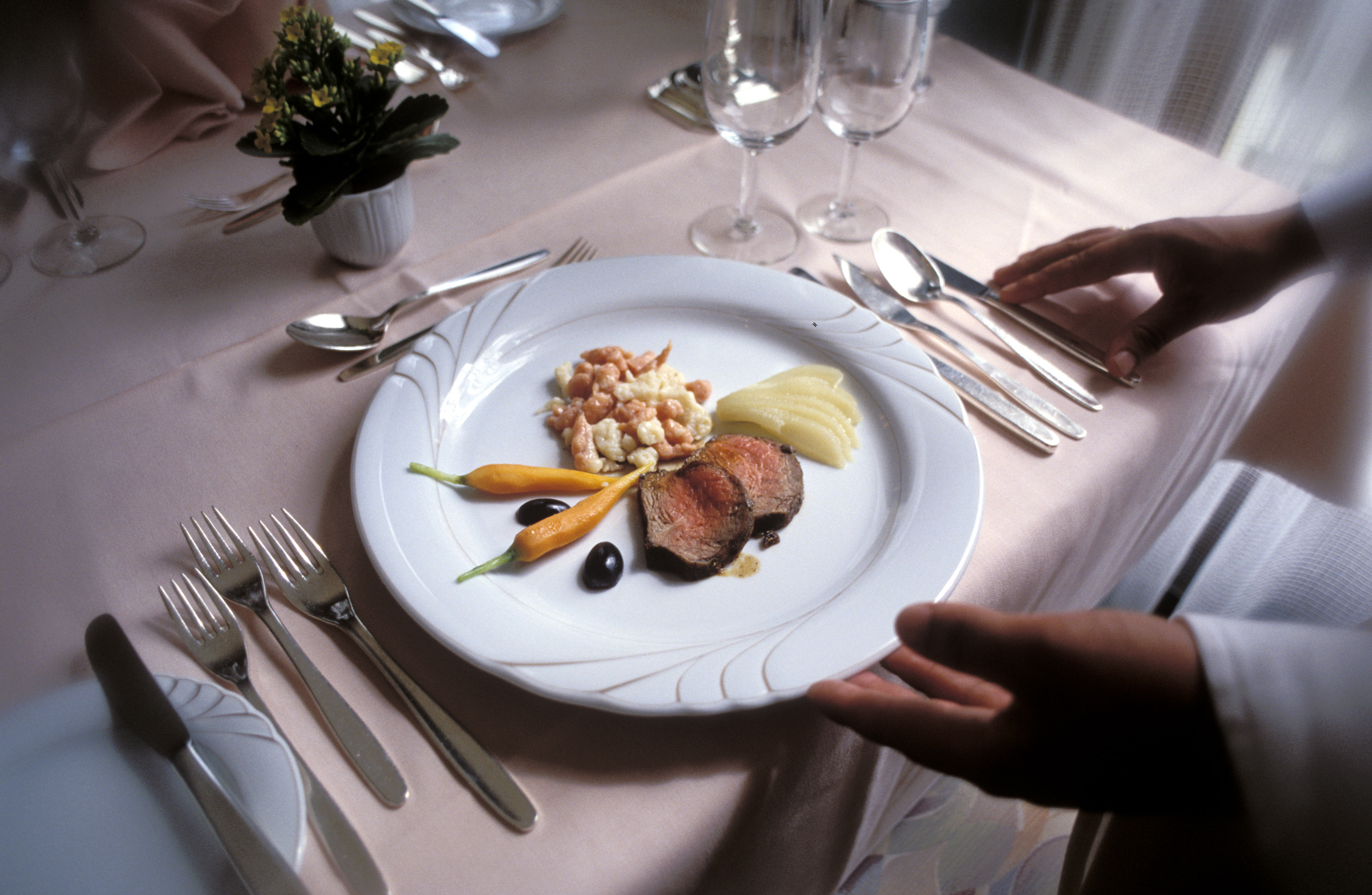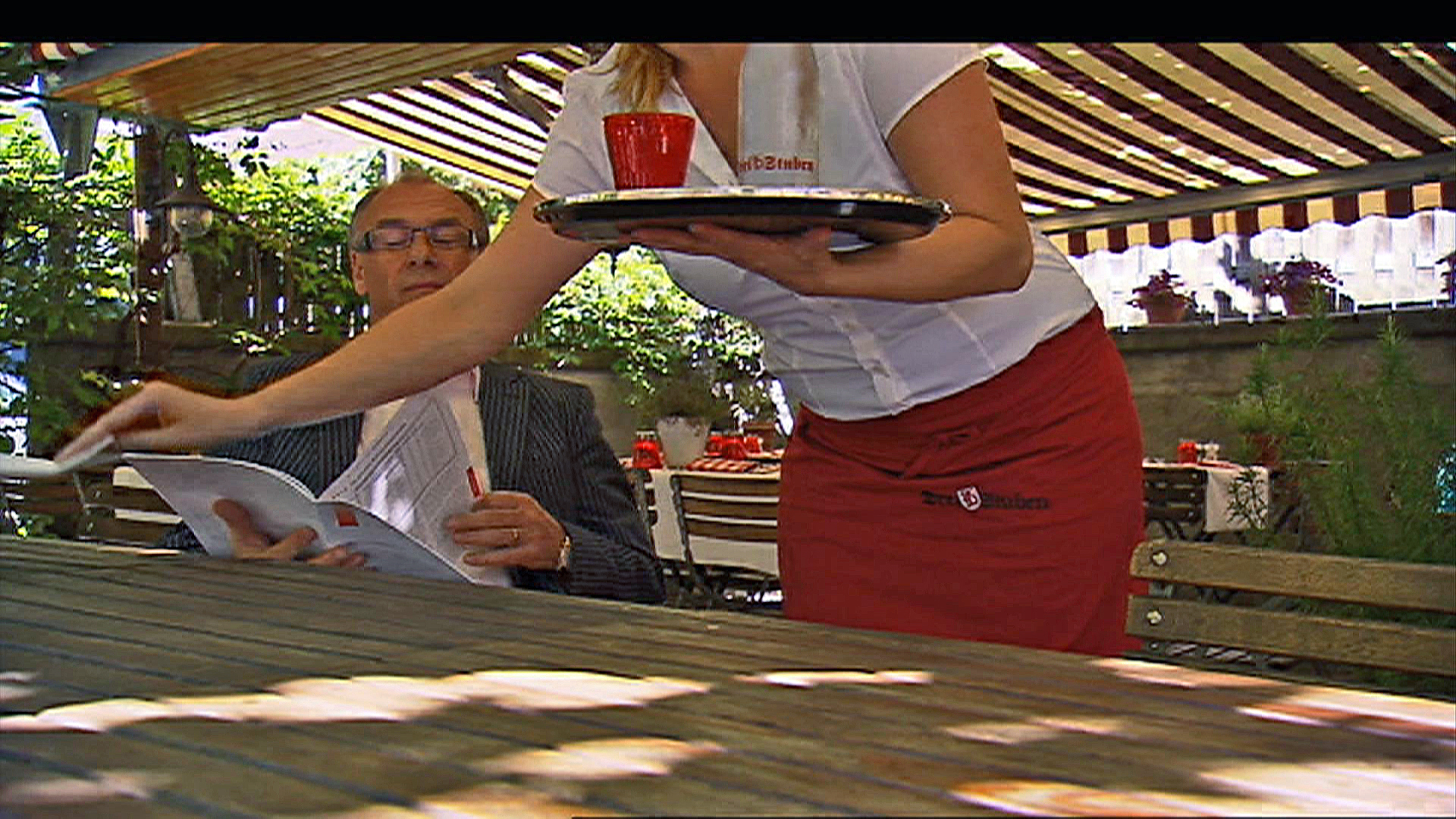Restaurants lose bid for VAT parity with takeaways

A move to create a level playing field in value added tax for restaurants and takeaways has been rejected by a large majority of voters on Sunday.
Faced with competition from takeaways, the restaurant and hotel association Gastrosuisse had mounted a political campaign to derail the success of their rivals, who benefit from a lower level of taxation.
The initiative was turned down by 71.5% of voters in the nationwide ballot. It failed to win the backing of any of Switzerland’s 26 cantons. Turnout was average at 47%.
The VAT rate for food and drink served in restaurants is fixed at 8%, while products sold over the counter in takeaways have a 2.5% rate. The discrepancy goes back to 1995, when VAT was introduced. It was decided to apply two different rates for food products sold over the counter and those served in restaurants.
On Sunday, Gastrosuisse expressed surprise at the outcome. “We’d had other feedback from the public,” president Casimir Platzer said, adding the campaign showed that most of the general public were unaware different rates existed and that the initiative had at least raised awareness of the importance of the restaurant sector.
“Gastrosuisse will now examine what other political steps can be taken to put an end to this VAT injustice,” said a statement.
Today, the restaurant business is struggling. Restaurant revenues have dropped from CHF26 billion ($27 billion) to CHF23.1 billion since 2010. On one hand, restaurants are paying for a weak Swiss tourism sector: since 2008, hotel overnight stays have dropped more than 7%. It is also grappling with a boom in takeaway outlets and changes to public eating habits over the past two decades, whereby a growing number of people have opted for fast food at lunchtime instead of sit down meals.
Gastrosuisse submitted the initiative to government in 2011, signed by over 118,000 citizens, in which it demanded a level playing field for restaurants and takeaways in tax. It argued that when VAT rates were set, the takeaway sector had hardly developed, but the number of outlets has since grown. It felt it unfair that a sandwich or a coffee served in a restaurant is more heavily taxed than the same product sold by a takeaway.
Little support

More
Single health insurance given short shrift
Finance Minister Eveline Widmer-Schlumpf welcomed Sunday’s results, saying even tourism-orientated cantons had been opposed to the idea and were not convinced this was the best way to support the troubled restaurant industry. She had repeatedly called on voters to reject the initiative.
She did note however that this was not the end of the discussion on different VAT rates, and some simplification was needed.
In the run up to the vote, the government had argued Gastrosuisse went too far with its demands. The only way to implement the initiative would have been for the VAT rate payable in restaurants to be lowered. That would mean a loss of CHF700-750 million annually to the federal coffers.
Any compensatory taxation measures would fall on other sectors, with social consequences too. An alternative solution would have been to raise the rate of tax due on other food products, including those sold by retailers. These products are currently taxed at a low rate because they are regarded as necessities. So an increase would have been hard to justify.
This position was shared by parliament, where the left and most of the centre had come out against the initiative.
In parliament, only the Swiss People’s Party backed the Gastrosuisse initiative. It said the restaurant business represented an important sector of the economy and was worthy of support. It also argued the current VAT system favoured the fast food trend, which contradicted public awareness campaigns for people to eat more healthily.
Single health insurance company: 38.2% yes, 61.8% no. Unified VAT rate in catering industry: 28.5% yes, 71.5% no.
Turnout: 46.7%
About 170,000 citizens, notably Swiss expats, were eligible to vote online. Nearly 26,000 of them – 15.2% – used the opportunity to take part in ongoing trials with e-voting, according to the Federal Chancellery.
Switzerland has one of the lowest VAT regimes in Europe. Most products are currently taxed at 8%. A special rate of 3.8% is being applied to the hotel sector, which has been going through a difficult patch. Numerous products considered as necessities or of social and cultural importance – retail foods, medicines, seeds, books, newspapers – are taxed at 2.5%. No tax is levied on a number of social, health, cultural, sporting and educational services. VAT is the government’s biggest single moneymaker. In 2012 it yielded CHF22.3 billion, over a third of all tax revenues.
Vote results in the cantons
Basel City and Basel Country won’t merge: The two Basel cantons won’t become one after a vote on September 28 where 68.3% of voters in Basel Country said no to the beginning of merger negotiations. Supporters of the merger had argued it would save both cantons money, politicians against the measure argued citizens of Basel Country should preserve their rural identity and not fuse themselves to a city.
Transparency in politics: The latest Swiss call for full transparency in politics was nipped in the bud as voters in canton Aargau rejected an initiative seeking to shed light on campaign financing and politicians’ financial entanglements. Voters rejected the proposal with 55.7% no votes.
Lake Geneva tunnel blocked: Voters in canton Geneva rejected plans to build a new 1.5-kilometre-long road tunnel under the lake. A total of 63% of voters turned down the initiative.
Electing foreigners: Canton Jura has voted 54% in favour of allowing foreigners to hold seats in government, while canton Schaffhausen 85% of voters said no to a proposal that would have allowed some non-Swiss to vote.

In compliance with the JTI standards
More: SWI swissinfo.ch certified by the Journalism Trust Initiative


You can find an overview of ongoing debates with our journalists here. Please join us!
If you want to start a conversation about a topic raised in this article or want to report factual errors, email us at english@swissinfo.ch.